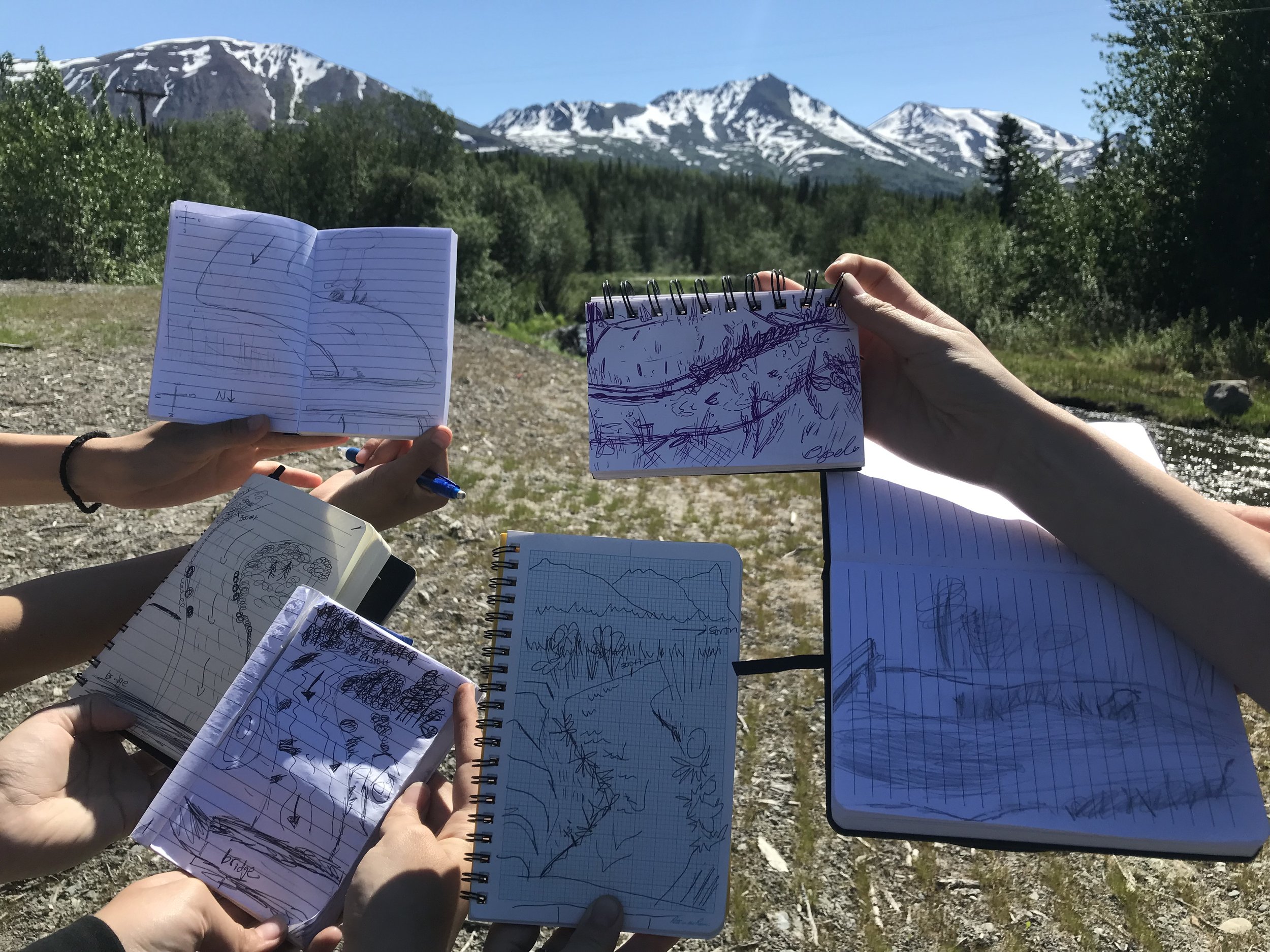YETIS Training For Success
Cheyenne and Koianna measuring river width. Photo by Colleen Merrick.
By Koianna Cooley and Cheyenne Fields - YETI Youth
This summer, the Youth Employment and Training Initiative (YETI) at Copper River Native Association (CRNA) is offering teens a unique opportunity to learn and engage in meaningful work. Collaborating with various regional organizations and agencies, eight local YETIs aged 14-18 are gaining valuable knowledge through experiential learning that positively impacts our community.
Cheyenne and Koianna measuring speed of water surface from Little Tonsina bridge. Photo by Colleen Merrick.
During the first week, we worked alongside professional Hydrologist Kirsti Jurica from the Copper River Watershed Project. We surveyed and monitored the Little Tonsina fish passage site, where we were introduced to observation notebooks, a precursor to lab notebooks. We applied high school math skills to calculate river depth, width, speed, and velocity, making real-world connections to our classroom lessons. We also learned how interconnected riparian (near water) ecosystems are, from the importance of macroinvertebrates to salmon health to how river velocity affects spawning habitats and infrastructure.
Cheyenne Fields , Koianna Cooley, Annushka Tubbs, Mason Lambert, Ally Fields, and Rene Rock learn how to calculate average depths, widths, and velocity of water from hydrologist Kirsti Jurica. Photo by Colleen Merrick.
By engaging in ecosystem management, YETIs are becoming strong advocates and protectors of the Copper River Basin. These experiences are opening our eyes to potential job pathways and mentors and serve as a supportive foundation for the future. Initially, Mason Lambert wondered, “What’s the point?” But now, he sees the river as a fun place to work, finds science interesting, and understands its impact on everyday life. Mason reflects, “Salmon is the healthiest, most affordable, and important traditional food that my family relies on.”
Sketches of the reach of river we surveyed using landmarks and including important mapping information. Photo by Colleen Merrick.
Beyond science, we are connecting to our culture. We discussed Ahtna culture in relation to the river. The term “Na,” dating back to the last ice age about 20,000 years ago, means moving water. Nearly every major tributary of the Copper River ends in “Na.” Ahtna means people of the Copper River, highlighting our deep connection to the river, riparian habitats, and reliance on the land and our non-human relatives. Sharing this knowledge could foster greater respect for our culture and traditional lands and waters.
This enriching experience was made possible by the Copper River Native Association and their YETI program, with gear, project information, and guidance from the Copper River Watershed Project. Special thanks to Hydrologist Kirsti Jurica from CRWP for providing insightful career knowledge and transforming basic math into a rewarding experience. We appreciate all our collaborators and their support.
Rene Rock, Koianna Cooley, Annushka Tubbs, Ally fields, and hydrologist Kirsti Jurica investigate macro-invertebrates. The group learns to identify and inventory species to understand habitat quality, availability of food for salmon and general health of the river. Photo by Colleen Merrick.
To learn more about fish passage projects and get involved, follow the Copper River Watershed Project on social media @copperriverwatershed or reach out to Amanda Jackson for questions about stewardship opportunities in our region. For insights into Ahtna culture and the traditional lands you live on, reach out to the Ahtna Lands Department or stop by the Cultural Center at Wrangell St. Elias National Park visitors center.





